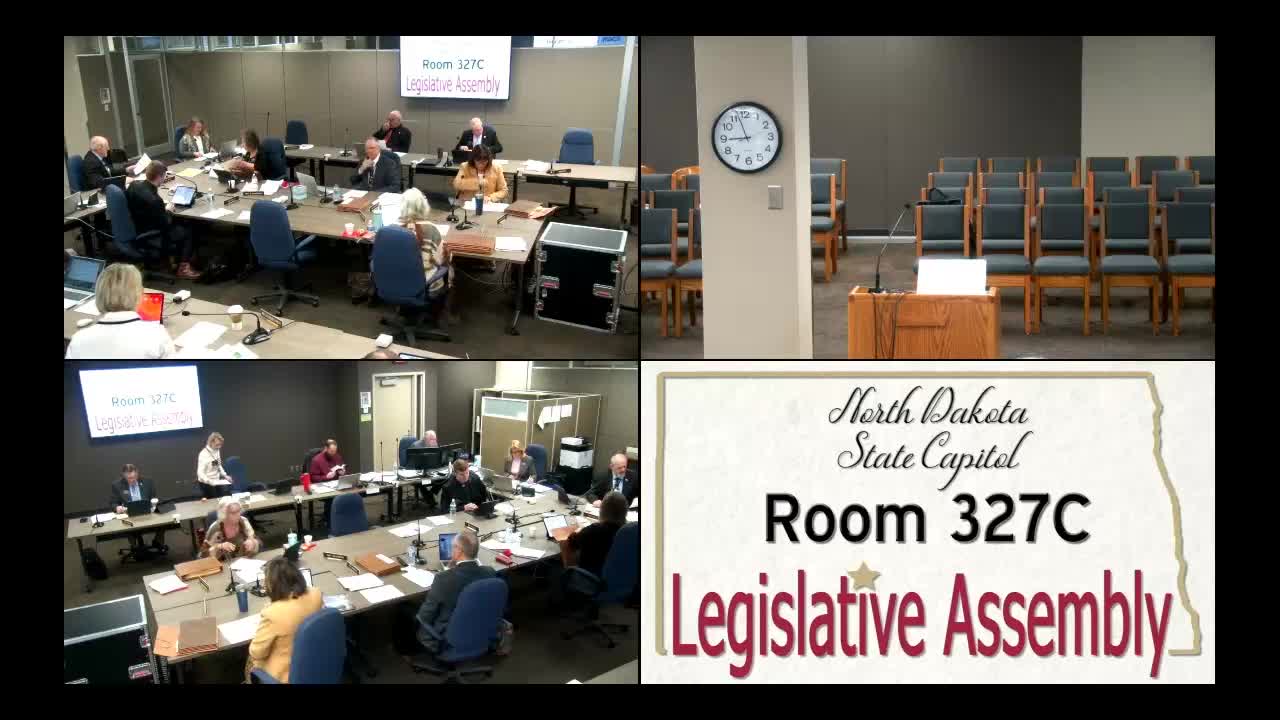Committee pauses natural‑asset company bill after agency and industry concerns; sponsor, AG counsel to refine definitions
Get AI-powered insights, summaries, and transcripts
Subscribe
Summary
The House Agriculture Committee paused consideration of House Bill 14‑53, a proposal to prohibit ‘natural asset companies’ from buying up easements and monetizing ecosystem services, after members and agency counsel warned the draft definitions are too broad.
The House Agriculture Committee took up House Bill 14‑53, a proposal to prohibit “natural asset companies” from operating, conducting business or acquiring certain easements or asset interests in the state. Members described the measure as intended to stop entities from buying up conservation easements en masse and removing agricultural land from production.
Sponsor Representative Anhalt (noted in committee as the presenter) said the bill does not stop landowners from enrolling in conservation programs such as CRP; rather, it would bar companies that aggregate easements and monetize ecosystem services from buying them as a clump. “So they’re they’re definitions that are coming straight off of the USDA's website… these would be the only changes,” the sponsor said, describing the effort to use USDA language from climate hubs.
Committee members and outside participants raised multiple concerns about the bill’s breadth. Representative Schreiberbecht and others asked whether carbon credits, wetland mitigation banks, ethanol‑industry arrangements and other market mechanisms might be inadvertently captured by the draft definition. Lance Gaby of the North Dakota Farmers Union said credits and the sale of low‑carbon attributes — for example, higher‑scoring ethanol produced at some plants — could create transactions that the bill might affect.
Dutch Bielke, general counsel to the Agriculture Commissioner, told the committee the current definitions are “very broad” and could have secondary effects that preclude activities the state might view as advantageous. He noted that phrases such as “extractive resources” and broad language about natural assets could unintentionally touch timber, water, minerals or other resources if not tightened.
Members cited existing restrictions that already limit nongovernmental acquisitions that remove land from production — including state anti‑corporate farming statutes and the prudent investor rule for certain institutional investors — but many said the draft still needed work to avoid unintended consequences. Representative Ulmer, Representative Volmer and others emphasized protecting agriculture while avoiding overbroad prohibitions.
The committee agreed to pause formal action and asked staff, Legislative Council and the Attorney General’s office to help rewrite and narrow definitions — particularly for “natural asset,” “natural asset company,” “extractive resources,” and carveouts for existing conservation programs and mitigation banks. No final vote was taken; sponsors withdrew pending motions and will return with revised language.
Committee members said they wanted to ensure the state both protects private agricultural use and avoids unintended impacts on existing conservation and carbon‑credit markets.
